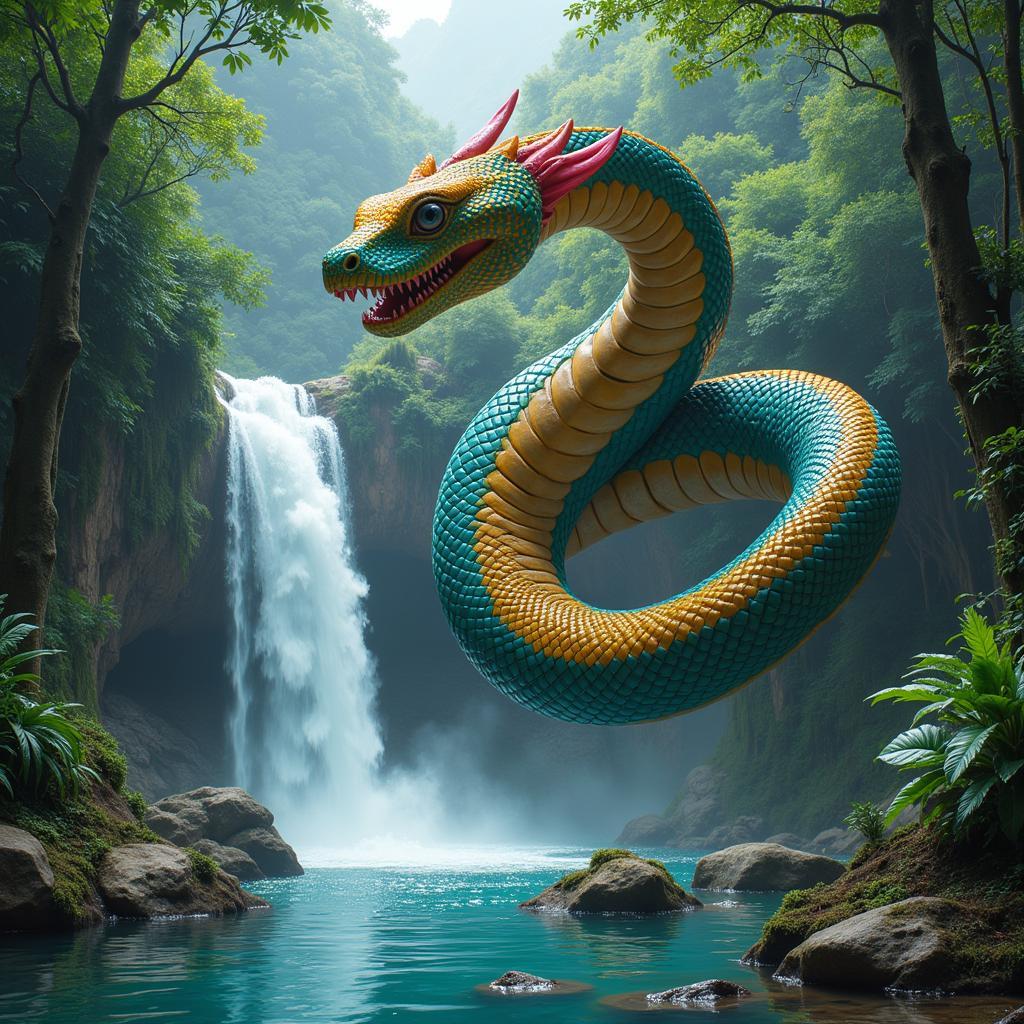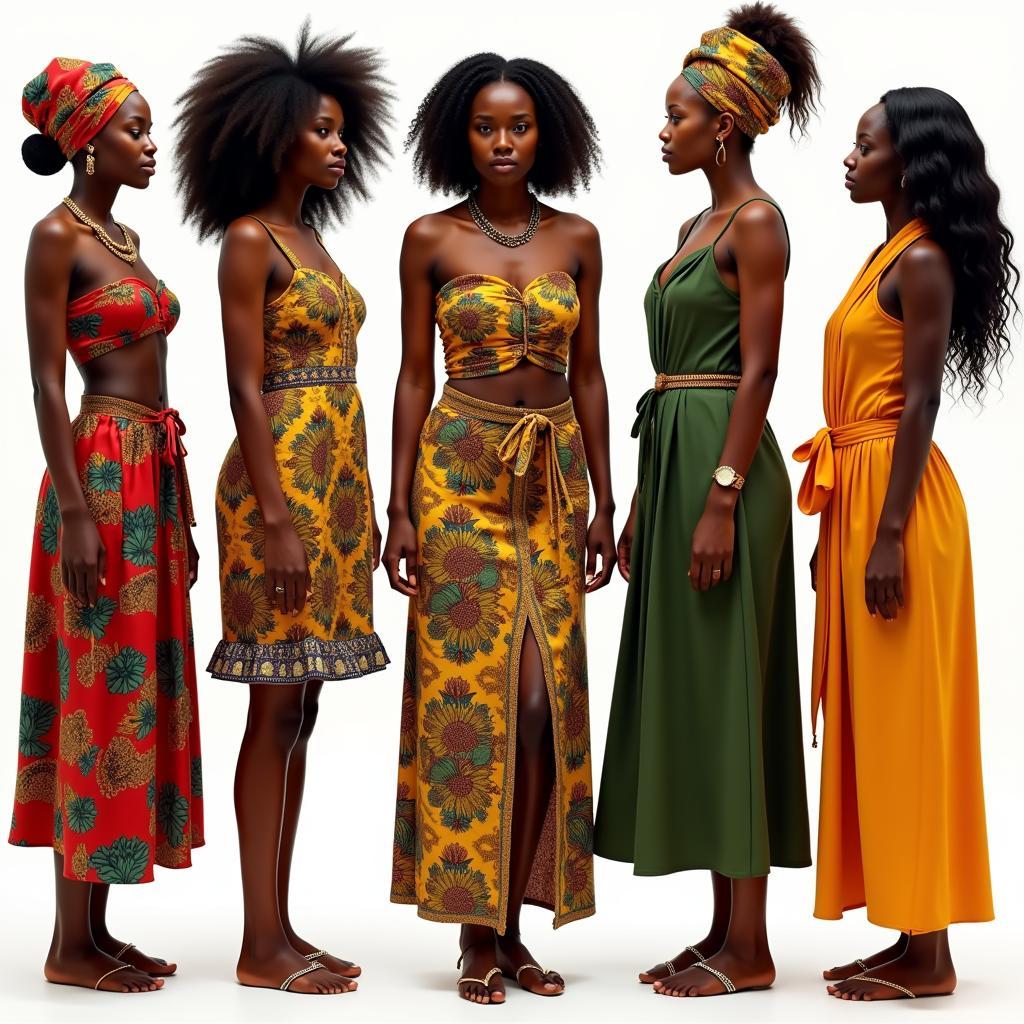Unraveling the Myth of the African Dragon
The term “African Dragon” might conjure images of fire-breathing beasts soaring over the savanna, but in reality, it refers to a more nuanced and fascinating aspect of African culture: the enduring power of myth and folklore. While dragons in the traditional, fire-breathing sense are not native to African mythology, the continent boasts a rich tapestry of serpentine creatures, each woven into the fabric of local beliefs and stories. These creatures, often possessing supernatural powers and embodying both benevolent and fearsome aspects, play vital roles in understanding the relationship between humans and the natural world in various African cultures.
The Rainbow Serpent: A Life-Giving Force
Across numerous African cultures, the serpent, particularly the python, holds a place of reverence and is often associated with water, fertility, and the cycle of life. One prominent example is the Rainbow Serpent, a mythical creature found in various forms throughout the continent. In West African traditions, the Rainbow Serpent, often known as Oshunmare, is revered as a deity of rainbows, water, and prosperity.  Oshunmare, the Rainbow Serpent Its appearance, often depicted as a giant python adorned with vibrant scales, signifies the beauty and life-giving force of water. Similarly, in some Southern African cultures, pythons are believed to be protectors of water sources and are treated with respect.
Oshunmare, the Rainbow Serpent Its appearance, often depicted as a giant python adorned with vibrant scales, signifies the beauty and life-giving force of water. Similarly, in some Southern African cultures, pythons are believed to be protectors of water sources and are treated with respect.
Guardians, Tricksters, and Shapeshifters: The Many Faces of African Serpent Spirits
Beyond the benevolent aspects, African folklore also features serpentine creatures with more menacing or ambiguous natures. The Kongamato, a cryptid said to inhabit parts of Central Africa, is described as a winged, lizard-like creature with a taste for human flesh. Its existence, while debated, speaks to the human fascination with the unknown and the power of oral traditions.
Furthermore, shapeshifting serpent spirits, often embodying trickster archetypes, appear in many African tales. These creatures, capable of assuming human form, use their cunning and wit to test morals and impart wisdom. A notable example is the Anansi stories from West Africa, where a spider-trickster, often depicted as a spider with human characteristics, uses his intelligence to outwit larger, more powerful animals, teaching valuable lessons about resourcefulness and the consequences of greed.
From Folklore to Reality: The Cultural Significance of “African Dragons”
While the “African dragon” may not exist in the fire-breathing, treasure-hoarding sense familiar from European mythology, the diverse array of serpent spirits and mythical creatures found across the African continent offer a window into the rich tapestry of African culture and belief systems. These creatures, embodying the duality of nature, reflect the deep respect and understanding African cultures have for the delicate balance between humanity and the natural world.
Understanding the role of these serpentine beings in African folklore provides a deeper appreciation for the continent’s diverse cultural heritage. These myths and legends, passed down through generations, continue to shape beliefs, inform cultural practices, and provide a framework for understanding the world around us.
FAQs about “African Dragons”
1. Are there any real dragons in Africa?
While Africa doesn’t have dragons in the traditional, fire-breathing sense, it has a rich mythology of serpentine creatures, often associated with water, fertility, or trickster spirits.
2. What is the Rainbow Serpent in African mythology?
The Rainbow Serpent, found in various forms across Africa, is often associated with water, fertility, and prosperity. It symbolizes the life-giving force of nature.
3. Are there any dangerous serpent creatures in African folklore?
Yes, some creatures like the Kongamato are depicted as fearsome predators. However, even these creatures often serve as cautionary tales, emphasizing the importance of respecting the natural world.
Looking for more insights into African culture and traditions?
Explore our other articles on African mythology, art, and folklore to delve deeper into the continent’s captivating heritage. Contact us at +255768904061, email us at kaka.mag@gmail.com, or visit us at Mbarali DC Mawindi, Kangaga, Tanzania for any inquiries. Our team is available 24/7 to assist you.

